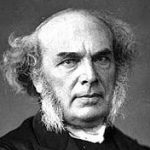Week of April 29, 2018
The Point: It’s always right to do the right thing.
Mordecai Discovers a Plot: Esther 2:19-3:6.
[2:19] Now when the virgins were gathered together the second time, Mordecai was sitting at the king’s gate. [20] Esther had not made known her kindred or her people, as Mordecai had commanded her, for Esther obeyed Mordecai just as when she was brought up by him. [21] In those days, as Mordecai was sitting at the king’s gate, Bigthan and Teresh, two of the king’s eunuchs, who guarded the threshold, became angry and sought to lay hands on King Ahasuerus. [22] And this came to the knowledge of Mordecai, and he told it to Queen Esther, and Esther told the king in the name of Mordecai. [23] When the affair was investigated and found to be so, the men were both hanged on the gallows. And it was recorded in the book of the chronicles in the presence of the king. [3:1] After these things King Ahasuerus promoted Haman the Agagite, the son of Hammedatha, and advanced him and set his throne above all the officials who were with him. [2] And all the king’s servants who were at the king’s gate bowed down and paid homage to Haman, for the king had so commanded concerning him. But Mordecai did not bow down or pay homage. [3] Then the king’s servants who were at the king’s gate said to Mordecai, “Why do you transgress the king’s command?” [4] And when they spoke to him day after day and he would not listen to them, they told Haman, in order to see whether Mordecai’s words would stand, for he had told them that he was a Jew. [5] And when Haman saw that Mordecai did not bow down or pay homage to him, Haman was filled with fury. [6] But he disdained to lay hands on Mordecai alone. So, as they had made known to him the people of Mordecai, Haman sought to destroy all the Jews, the people of Mordecai, throughout the whole kingdom of Ahasuerus. [ESV]
“A Plot Uncovered [2:19-23]. Mordecai himself proved the power of the right information used in the right way, when he uncovered a plot to harm Ahasuerus [2:21-23]. Two of the king’s eunuchs, Bigthan and Teresh, conspired to kill the king. Mordecai became aware of their plot while he was sitting at the king’s gate. This location normally identifies someone as an official of the king. Whether Mordecai held such a position already before Esther’s rise to the throne or received it through Esther’s influence is not clear. Mordecai passed the information on to the king through Esther, who herself was careful to give credit to Mordecai. In that way, both of their positions were made a little more secure by putting the empire in their debt. The result was that the conspirators were hanged, while Mordecai’s name was inscribed in the royal annals. The result also ought to have been recognition for Mordecai. In general, the Persian kings were extremely diligent and generous in rewarding those who had served well. They kept careful lists of the king’s benefactors, those who had done them a favor, in order that no good deed (from the empire’s perspective) might go unrewarded. Yet strangely, this particular good deed did go unrewarded at the time. Mordecai probably spent weeks and months waiting in vain for some token of appreciation. Unlike God, who is never negligent in rewarding His faithful servants, the Persians sometimes failed to reward faithful service. Yet, as we shall see, that uncommon forgetfulness on the part of Ahasuerus was absolutely necessary in God’s plans. Timing is everything in the work of providence, and even though his hand is still invisible, God is nonetheless at work accomplishing His own ends.
Disobedience and Its Consequences. The first lesson that this chapter of Esther teaches us is that disobedience and sin – even the disobedience and sin of others – have far-reaching consequences. Why was Esther caught up and condemned to this apparently meaningless life in a gilded cage? In part, at least, because she lived in Susa. The edict to gather all of the good-looking unmarried women in the empire was presumably carried out with more thoroughness in Susa, under the nose of the emperor, than in the more distant provinces. Why was she living in Susa? She was there because of the sin and disobedience of her forebears. It was disobedience that had brought the family of Mordecai and Esther into exile at the time of Jehoiachin. The destruction of Jerusalem was not simply an accident of faith: it was the culmination of the judgment of God upon His own people who had abandoned Him. Disobedience brought God’s people into exile in the first place. What is more, it was disobedience that kept Mordecai and Esther’s family in exile. In 538 B.C., Cyrus issued a decree permitting the Jews to return home. Some went back with Zerubbabel at that time [Ezra 1-2], but many stayed, comfortably settled where they were, outside the land of promise. Compared to a backwater like Jerusalem, Susa seemed a much better place to make progress and advance in the service of the empire, as Mordecai discovered. But those who play the empire’s game are likely sooner or later to find themselves playing by the empire’s rules. Had Mordecai and Esther (or their parents) returned to Jerusalem at some time in the previous fifty years, would Esther still have been taken by the harem recruiters? Perhaps, but she certainly wouldn’t have been such an easy target. The result of the family’s history of disobedient compromise was that Mordecai and especially Esther found themselves in a position that, for all its worldly advantages, was potentially disastrous spiritually. Esther ended up married to an uncircumcised pagan and virtually cut off from the community of faith, successfully pretending not to be a child of the true and living God. Was it possible completely to privatize one’s faith as an exile, to be a faithful believer in private but never let it show in any outward way during five years of life in the king’s harem? Surely not. Her enviable progress in one world, the world of the empire of Ahasuerus, came at the cost of completely suppressing her identity as a citizen of the kingdom of God. This is surely a temptation with which we can identify, and all the more because the pressure was so subtle. Esther wasn’t instructed to deny her faith, only to conceal it in order to avoid potential problems. And the pressure to conform came from within her own family, not just from the pagan empire. Was it really such a big deal for her to hide her Jewishness? Is it really such a big deal for us to hide our faith in order to gain tenure at a public university, or to fit in with the business environment, or to earn the friendship of our peer group? Caving in to pressure and concealing our faith may lead to progress in the world, but at what cost to our souls? Yet we see in this chapter more than just the bitter fruit of disobedience. We also see God’s ability to turn our disobedience – and the sour fruits of our parents’ sins – to His own glory and His people’s good. Ahasuerus and his cronies meant their edict purely for the satisfaction of the king’s selfish pleasures. Mordecai and Esther found themselves impaled on the horns of a dilemma because of their earlier compromises with the empire. They found it much easier to comply with the empire’s wishes than to resist assimilation – and which of us can be sure that we would have charted a different course? Yet God’s hand hovers over every detail, moving the pieces into the place He has determined – even through their sin and compromise – in order to achieve His own good pleasure.
Mordecai Makes a Stand [3:1-15]. The king promoted Haman the Agagite and set him above all the officials in his empire. But Mordecai refused to pay homage to Haman. Why did Mordecai act in the way? The king had commanded it, and everyone else was paying Haman homage. The text tells us that Haman was an Agagite. He was thus a descendant of Agag the Amalekite, the ancient tribal enemy of the Jews. When Israel came out of Egypt, the Amalekites attacked them in the wilderness, for which God cursed them and condemned them to extinction [Ex. 17:8-16]. Because of that assault, God declared that there would be a lasting enmity between the two peoples, and He committed Himself to blot out all remembrance of Amalek from the face of heaven. In the time of King Saul, God sent Israel to carry out that sentence on Amalek, destroying man and beast [1 Sam. 15]. But Saul failed to carry out the terms of holy war, as God had commanded him to do. Instead, he spared the best of the animals and King Agag himself. For this act of disobedience, Saul was abandoned by God and rejected [1 Sam. 15:28]. So for Mordecai, whose genealogy links him to King Saul’s family, to bow to Haman, a descendant of King Agag’s family, was just too much to swallow. It would have seemed to be giving in to a hated enemy, whom God had cursed. Bowing to King Ahasuerus, the pagan authority set over God’s people by God on account of their sin, was one thing; bowing to Haman was another thing altogether for Mordecai. But was Mordecai right in acting this way? He had made many compromises, why take a stand here? Bowing to Haman was only a secondary issue. Furthermore, it was an issue only because of past failure on the part of God’s people. If King Saul had carried out his commission properly in the first place, there wouldn’t have been any Agagites left to threaten his descendants. This is a perennial problem. Past sins have a way of coming back repeatedly to haunt us, and sometimes our children after us. How many difficult ethical decisions, over which we agonize for hours, wouldn’t even be confronting us were it not for our past sins? And once the complications begin, they tend to proliferate. So it was for Mordecai. It didn’t take long before Mordecai’s behavior was brought to Haman’s attention. Instead of taking his anger out on Mordecai, Haman sought to destroy all the Jews [3:5-6]. The Persian Empire was normally relatively tolerant of ethnic minorities and their sensibilities – this was one of the reasons why it was attractive to many of the Jews to stay there rather than return to Jerusalem. However, that famed tolerance was not in evidence in this case. Mordecai soon discovered that although the empire may seem superficially benign and tolerant, it can turn nasty in short order. Haman scorned a simple revenge upon Mordecai as a personal enemy. Eliminating a single individual was far too small a payback for his wounded vanity. Instead, he planned an end to all of Mordecai’s people throughout the empire. Mordecai’s stand for truth would have repercussions not just in his own life but also in those of his family, his friends, and his community [5:6]. The whole people group would have to pay for the actions of a single individual. Having decided on a plan to eliminate the Jewish people, Haman needed to put it into action. The first thing to do was to consult the fates to find the most suitable date for this massacre. So Haman held a lottery to determine when the ugly deed would take place [3:7]. Haman’s plan to destroy an entire people group could not be carried out on his own authority, either. In order to make it work, he needed the compliance of King Ahasuerus. Not that such permission was hard to come by. The empire could be manipulated by a skilled political operator, its laws used to oppress and destroy. All that was needed was for those who should have been in charge to stand by and let it happen. [3:8-11]. So why did Ahasuerus allow Haman to pass his decree? In the first place, he didn’t care enough to find out what was really going on. Haman’s description of the problem was remarkably vague: there is a certain group of people who keep to themselves, have their own laws, and do not obey the laws of the king. The Israelites had committed the ultimate sin against the empire: the sin of not being assimilated. Apparently, Ahasuerus never even inquired who the people were or what exactly it was costing him to leave them alone. Ahasuerus cared little for the truth. All he needed was enough reason to do what seemed in his best interest: it is not to the king’s profit to tolerate them [3:8]. Second, however, Ahasuerus was motivated by simple greed. Haman offered him a vast sum of money, ten thousand talents of silver – more than half of the annual tax revenue of the entire empire. Where Haman proposed to come up with such a vast sum is not clear. It is clear, however, that his motivation was not financial, for even if he personally appropriated all the plunder of the Jews, he would still have been out of pocket a considerable amount. Yet Ahasuerus seemed as unconcerned by that question as he was by any others. When he weighted the potential financial benefit against the cost of signing off to destruction an obscure, unidentified people, there was no contest. The result was that he handed his power over to an evil man, who used it to plot genocide. So the edict for the destruction of God’s people was signed, sealed, and delivered to the furthest corners of the empire, in the various languages of the peoples [3:12-15].” [Duguid, pp. 25-44].
“Contemporary Significance. God’s Mysterious Working. Most of us like to think that through thoughtful planning and wise living we can successfully direct the course of our lives. While much of the time life might cooperate with our plans, all of us can probably look back and see how circumstances beyond our control have redirected our lives, whether for good or for sorrow. Our sense of ultimately being in control is at times revealed by life’s circumstances to be an illusion. Whether we like it or not, we often feel caught in circumstances beyond our control. Life is full of seemingly insignificant events that in retrospect we recognize as changing the course of our lives. Every new day brings circumstances and decisions, and we cannot know how one event will lead to another. Only God knows the end of a matter before it has even begun. The author of Esther is demonstrating the workings of divine providence. God works mysteriously, patiently, and inexorably through a series of “coincidental” events and human decisions, even those based on questionable motives and evil intents. All of the “chance” events in life are really working toward the end that God has ordained. Esther suffered the humiliation of being taken into the king’s court to be sexually used. Apparently no one considered what plans she might have had for her life, plans perhaps to be a godly wife with a home and family. Her plans for her life were forever changed when the king’s men seized her from her home. Mordecai suffered the humiliation of being deprived of his rightful reward after putting himself at risk to save the king’s life when he reported the treacherous eunuchs. To add insult to injury, Haman was all the while gaining the power that would eventually be turned against Mordecai and his people. There is the sad irony that when the wicked do prosper, God’s people are often overlooked and unrewarded. It is frustrating when our best plans are overturned and our good deeds and hard work go unnoticed and unrewarded. Most bitterly, we often see others prosper who are less deserving, at least in our own opinion. Such injustice hurts, but the example of Esther and Mordecai give us reason to bear such situations with patience and grace. Mordecai’s forbearance when he did not receive the expected reward allowed that injustice to lead to greater good when it was finally put right. God is invisibly at work, making even life’s greatest disappointments a link in a chain of good things yet to come. We cannot see the end of things from the middle and must walk by faith, not by sight. The Lord will bring a greater good, His perfect plan, out of all the frustration we feel and out of all the evil we experience. When all is said and done, God uses even injustice to fulfill His promises to us. As Joseph explained to his brothers, you meant evil against me, but God meant it for good [Gen. 50:20]. God’s absolute sovereignty is displayed magnificently in the great paradox that even Satan’s wrath and retribution working through worldly powers is nevertheless constrained by God’s eternal decrees [see Acts 3:17-18; 4:27-29]. God works concurrently through the very forces that Satan means for evil to bring about His perfect good. It was with this confidence that the early church prayed for boldness to preach the gospel while facing life-threatening opposition. With this same confidence, Christians today can face the powers of evil arrayed against them.” [Jobes, pp. 127-129].
Questions for Discussion:
- We learn in Esther how disobedience and sin have far reaching consequences, even the disobedience and sin of others. Trace how this is true in the life of Esther and Mordecai. Think about how it is also true in your life. Yet God is able to work to bring about His plan even in the midst of our disobedience and sin.
- Why did Mordecai act towards Haman the way he did? Why did he refuse to honor Haman? Notice the long range effects of King Saul’s disobedience to God. Note also here how Mordecai’s actions impact and threaten the entire Jewish people.
- How do we see God at work in the events of this passage? How do we see God working through a series of “coincidental” events and human decisions, even those based on questionable motives and evil intents? What hope and comfort can you draw from how God is able to overcome evil human actions to accomplish His plan?
References:
Ezra, Nehemiah, Esther, Mervin Breneman, NAC, B & H Publishers.
Esther & Ruth, Iain Duguid, REC, P & R Publishing.
Esther, Karen Jobes, Zondervan.

















